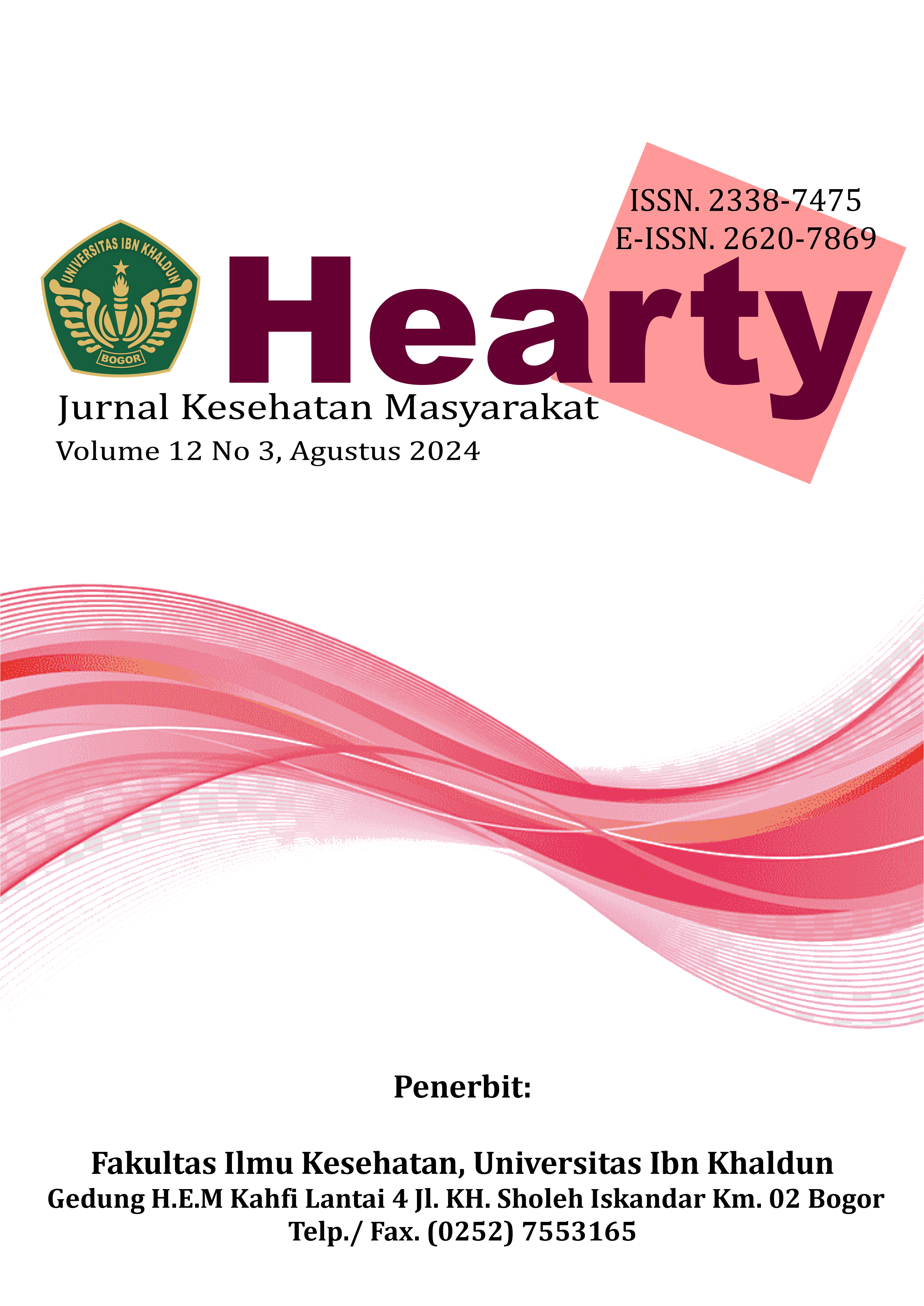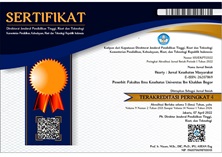RELATIONSHIP OF KNOWLEDGE ABOUT SIGNS DANGER PREGNANCY AND SUPPORT HUSBAND WITH COMPLIANCE WITH ANTENATAL VISITS CARE (ANC) IN PREGNANT WOMEN IN THE III TRIMESTER IN ANANDA CLINIC, LEBAK DISTRICT
DOI:
https://doi.org/10.32832/hearty.v12i3.15977Abstrak
Background: The success of ANC services can be assessed using the Maternal Mortality Rate (MMR) index. There are two main causes of high mortality rates, one of which is a lack of understanding of the causes and prevention of important complications in pregnancy. This problem in pregnant women can be prevented if mothers and families know about the danger signs of pregnancy and the responses given to overcome them. Steps that can be taken to reduce the risk of death in pregnant women and fetuses are by making regular ANC visits. Objective: To determine the relationship between knowledge about danger signs of pregnancy and husband's support with compliance with antenatal care (ANC) visits among pregnant women in the third trimester at the Ananda Clinic, Lebak Regency in 2023. Methodology: Using correlation analytical methods with a cross sectional approach. The population in this study was 104 third trimester pregnant women. The sample used was 83 third trimester pregnant women using a purposive sampling technique that met the inclusion and exclusion criteria. independent variable knowledge and husband's support, dependent variable Compliance with Antenatal Care (ANC) visits, using a questionnaire, data processing using the chi square test with the help of the SPSS computer program. Research result: There is a significant relationship between knowledge about danger signs of pregnancy p-value 0.003 and husband's support p-value 0.000 with compliance with Antenatal Care (ANC) visits for pregnant women in the third trimester at the Ananda Clinic, Lebak Regency in 2023. Conclusions and Suggestions: It is hoped that the results of this research will increase the knowledge of mothers and families, as well as increase the knowledge and participation of families, especially husbands, to provide support to mothers during pregnancy.
























